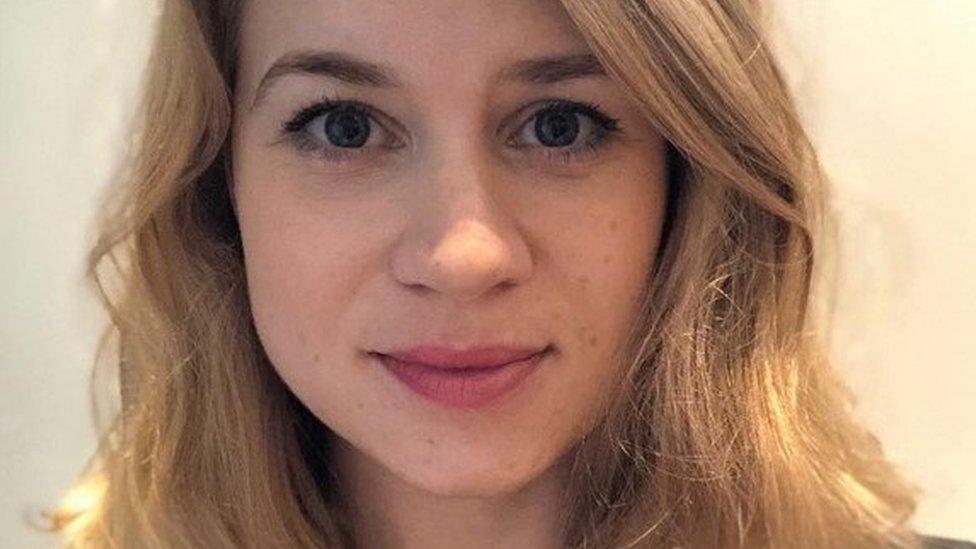Sarah Everard murder case: What happens next?
- Published
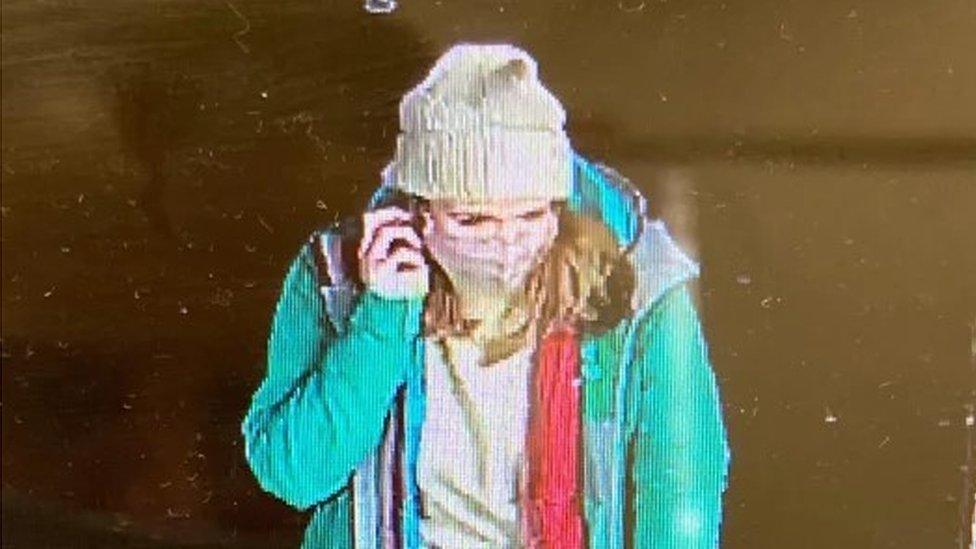
The last confirmed sighting of Sarah Everard was 30 minutes after she left her friend's home in Clapham
A Met Police officer has been charged with the kidnap and murder of 33-year-old marketing executive Sarah Everard. It means criminal proceedings are under way but, with the justice system creaking under a massive backlog, how long might it be before a trial could take place?
To start with, Wayne Couzens will be taken to Westminster Magistrates' Court for his first court appearance.
All such proceedings start at the magistrate level, where a defendant confirms personal details such as their name, date of birth and where they live. Serious crimes, known as indictable offences, are always sent up to crown court.
The 48-year-old will then appear at crown court - most likely the Central Criminal Court in London, which is better known as the Old Bailey.
A judge will listen to the background of the case and can grant or refuse bail - although it is extremely rare for someone accused of murder to be granted bail., external The judge will also set a date for a plea hearing and, should Mr Couzens plead not guilty, he will go on to be tried by a jury.
When might a trial take place?

The Old Bailey hears major criminal cases from London and exceptional cases from other parts of England and Wales
The coronavirus pandemic has contributed to a backlog that stands at an estimated 56,000 crown court cases in England and Wales.
About 65% of the crown court backlog is believed to be made up of trials, and many will not go before a jury until 2022 at the earliest. The other cases are sentencing hearings and plea preparations.
Due to the pandemic, social distancing measures have had to be put in place. This means not all trials in the past year have been able to be heard in court buildings, which often have very cramped conditions.
So finding a suitable courtroom could take some time, as dates have already been set for other trials.
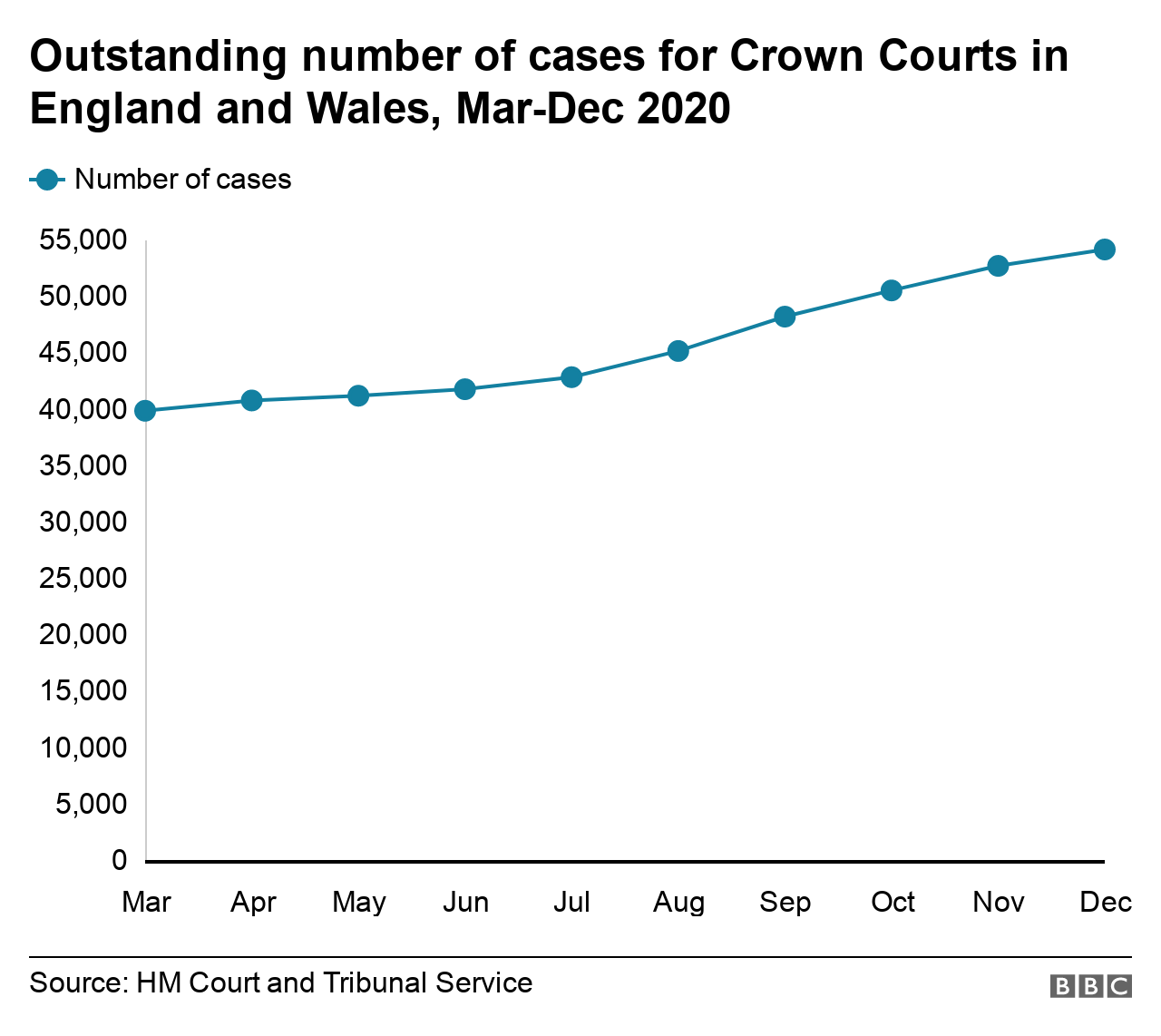
Mr Couzens has been charged with murder and has already been remanded into custody.
Custody ahead of a trial carries a time limit which is currently eight months, but this can be reviewed, extended or cut by a judge.
There are protocols in place to expedite the most serious cases, both in the interests of public protection and management of dangerous offenders on remand.
Any trial could well take place this year, should it be fast-tracked.
What about social media?
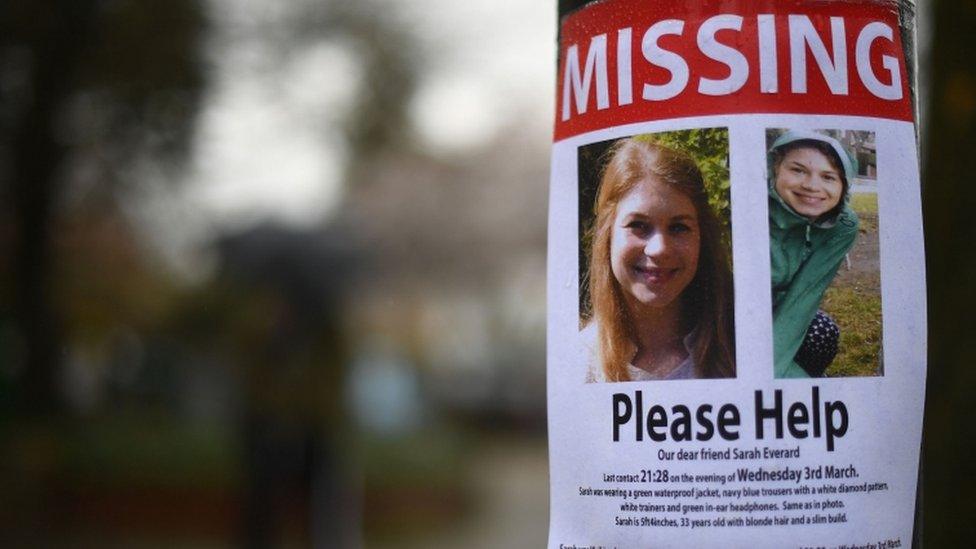
Posters of Sarah Everard were widely across social media after her disappearance
Particularly now there has been a charge in the case, people need to be especially cautious about what they post about it on social media.
Posts should not include comments claiming or implying that any suspect is guilty of an offence of which they have been accused, nor anything else that could prejudice a trial or impede the administration of justice.
This is because, according to English law, everyone charged with a criminal offence shall be presumed innocent until proven guilty and everyone has the right to a fair trial.
Criminal proceedings against Mr Couzens have been "active" since his arrest.
This means that under contempt of court laws, nothing should be published that could cause a substantial risk of seriously prejudicing or impeding the legal process, for example by influencing potential jurors.
What has the Met Police said?
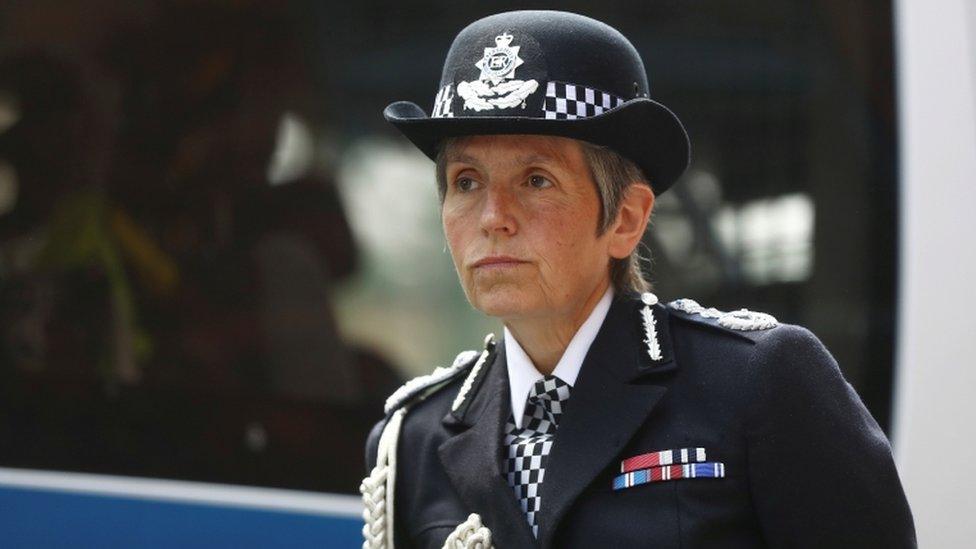
Dame Cressida Dick has said it is a police officer's job "to patrol the streets and to protect people"
Commissioner Dame Cressida Dick said that the arrest of a serving police officer on suspicion of murder had caused anger both within the Met and with the general public.
As is usual, because one of its own has been arrested, the Met referred itself to the Independent Office for Police Conduct (IOPC) as well as its in-house Directorate of Professional Standards.
Both are responsible for investigating complaints about the professional conduct of officers.
The IOPC has also launched an investigation into the Met's initial handling of the missing person investigation.
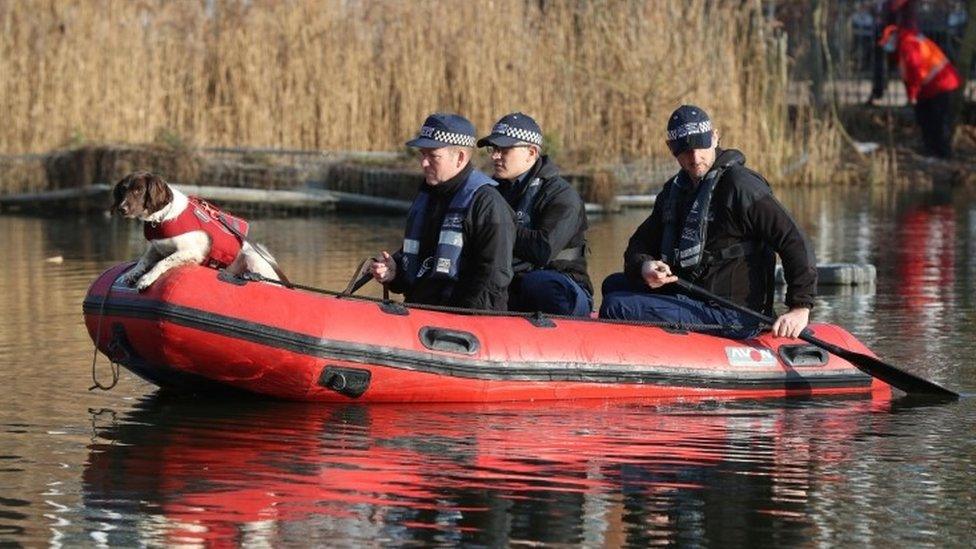
While Ms Everard was missing, police officers and sniffer dogs searched Eagle Pond on Clapham Common
Ms Everard's last known movements were at about 21:30 GMT on 3 March, shortly after she got off the phone to her boyfriend.
It took roughly 36 hours for police to make their initial appeal for information about the whereabouts of the marketing executive.
But the findings of investigations into the way the case was handled would not be made public until after any murder trial.
- Published13 March 2021
